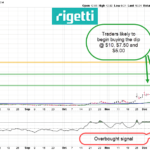Why Don’t We All Just Use Quantum Computers Now?
Quantum computing, while revolutionary in its potential, remains in the early stages of development. Unlike traditional computers that use binary bits, quantum computers leverage qubits, allowing them to solve complex problems exponentially faster. However, the technology faces significant hurdles:
- Stability: Qubits are highly unstable and require near-absolute-zero temperatures to function, making operational environments costly and complex.
- Scalability: Building systems with a large number of qubits is challenging, as errors increase with scale.
- Practical Applications: While quantum computers excel at specific tasks like cryptography and material simulation, their everyday utility is limited compared to classical systems.
These barriers mean quantum computing is not yet ready for widespread adoption, with experts suggesting a timeline of 15 to 30 years before the technology becomes mainstream.
Why Did Jensen Huang Speak Negatively About Quantum Computing Stocks?
Nvidia CEO Jensen Huang’s recent comments during the company’s analyst day tempered expectations for quantum computing. Huang predicted that the widespread rollout of quantum technology is still at least 20 years away, citing the slow pace of technological and practical advancements.
Huang’s remarks highlighted the disconnect between investor enthusiasm and the current state of quantum technology. By setting realistic timelines, he warned against overestimating near-term gains, which led to a sharp sell-off in quantum computing stocks like Rigetti Computing (NASDAQ: RGTI), Quantum Computing Inc. (NASDAQ: QUBT), and D-Wave Quantum (NYSE: QBTS). His caution underscores that, despite progress, quantum computing remains a long-term investment rather than a near-term market disruptor.
Why Quantum Computing Stocks Surged 400% in December
Quantum computing stocks like Rigetti Computing (NASDAQ: RGTI), D-Wave Quantum (NYSE: QBTS), and Quantum Computing Inc. (NASDAQ: QUBT) saw extraordinary gains in December due to a combination of optimism about innovation, strategic advancements, and sector-wide momentum.
- Market Optimism: Investors bet on quantum computing’s potential to transform industries like AI, healthcare, and finance, fueling speculative demand.
- Strategic Partnerships: Companies like Rigetti and D-Wave secured key collaborations with governments and enterprises, reinforcing confidence in their long-term potential.
- Broader Tech Rally: A December tech rebound amplified gains for smaller-cap quantum stocks, making them attractive to retail and institutional investors.
While the rally showcased the market’s belief in quantum’s transformative power, it was heavily speculative, leading to sharp corrections in January after Nvidia CEO Jensen Huang highlighted the 20-year timeline for widespread adoption.
The Future of Quantum Computing Stocks
The quantum computing sector is poised for long-term growth, but investors should temper expectations with realism:
- Opportunities: Companies like Rigetti Computing and Google are laying the groundwork for breakthroughs in cryptography, AI, and material science, industries that could see exponential growth once quantum technology matures.
- Risks: The high costs of development, technical challenges, and uncertain timelines pose significant risks. Stocks in this sector are highly speculative and prone to volatility.
Quantum computing represents a transformative frontier in technology, but its practical application remains decades away. While companies like Rigetti Computing and Google are making strides, the market must reconcile investor excitement with realistic timelines. Jensen Huang’s comments serve as a reminder that patience is essential, and quantum computing stocks are a bet on the future rather than an immediate opportunity.
Sources










